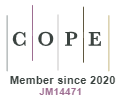What is a Data Scientist? Analysis of core soft and technical competencies in job postings
DOI:
https://doi.org/10.5585/iptec.v8i1.17263Palavras-chave:
Data Scientist, Professional Competences, Data Analysis, Big DataResumo
The advancement of technologies has enabled companies to transform a large amount of data generated into important information for making strategic decisions. With this, the Data Scientist has been demanded as a piece of fundamental value for the organization. However, the skills necessary for this professional to work in the market are not yet consolidated in the literature. This research aims to map and analyze the soft skills and technical competencies of Data Scientists through a descriptive approach, using both a qualitative and quantitative typology. By collecting job postings, it was possible to verify that most companies are not concerned with the candidate’s degree and educational level, but with the necessary soft skills and technical competencies. In this sense, the trend is to value a multidisciplinary profile. Among the most important skills for these professionals are Good Communications, Team Player, Problem Solver, Python, English, and SQL. We compilated the main skills aiming to contribute to the profile of the Data Scientist, that is still something new to be understood both by companies and by the literature.
Downloads
Referências
Barton, D., & Court, D. (2012). Making advanced analytics work for you. Harvard Business Review, 90(10), 78–83.
Bayrak, T. (2015). A review of business analytics: A business enabler or another passing fad. Procedia-Social and Behavioral Sciences, 195, 230-239.
Bradbury, D. (2011). Data mining with LinkedIn. Computer Fraud & Security, 2011(10), 5-8.
Chatfield, A. T., Shlemoon, V. N., Redublado, W., & Rahman, F. (2014). Data scientists as game changers in big data environments. Proceedings of the Australasian Conference on Information Systems, Auckland, New Zeland, 25.
Chui, M., Kamalnath, V., & Mccarthy, B. (2018). An executive’s guide to AI. McKinsey & Company.
Chuprina, S., Postanogov, I., & Kostareva, T. (2017). A way how to impart data science skills to computer science students exemplified by obda-systems development. Procedia Computer Science, 108, 2161-2170.
Costa, C., & Santos, M. Y. (2017). The data scientist profile and its representativeness in the European e-Competence framework and the skills framework for the information age. International Journal of Information Management, 37(6), 726-734.
Donoho, D. (2017). 50 years of Data Science. Journal of Computational and Graphical Statistics, 26(4), 745-766.
Ecleo, J. J., & Galido, A. (2017). Surveying LinkedIn Profiles of Data Scientists: The Case of the Philippines. Procedia Computer Science, 124.
Gupta, M., & George, J. F. (2016). Toward the development of a big data analytics capability. Information & Management, 53(8), 1049-1064.
Ho, A., Nguyen, A., Paffod, J., & Slater, R. (2019). A Data Science Approach to Defining a Data Scientist. SMU Data Science Review, 2(3).
Marcolin, C., Becker, J. L., Wild, F., Schiavi, G., & Behr, A. (2019). Business analytics in tourism: Uncovering knowledge from crowds. BAR-Brazilian Administration Review, 16(2).
Marr, B. (2016). Big Data: Will We Soon No Longer Need Data Scientists?. Retrieved 30 November, 2019, from https://www.forbes.com/sites/bernardmarr/2016/04/27/will-we-soon-no-longer-need-data-scientists/#2242e2e26897.
Mauro, A. de, Greco, M., Grimaldi, M., & Ritala, P. (2018). Human resources for Big Data professions: A systematic classification of job roles and required skill sets. Information Processing & Management, 54(5), 807-817.
Mcafee, A., & Brynjolfsson, E. (2012). Big data: The management revolution. Harvard Business Review, 90(10), 61–67.
Mendelevitch, O., Stella, C., & Eadline, D. (2016). Practical Data Science with Hadoop and Spark: Designing and Building Effective Analytics at Scale. Addison-Wesley Professional.
Meyer, M. A. (2019). Healthcare data scientist qualifications, skills, and job focus: a content analysis of job postings. Journal of the American Medical Informatics Association, 25(5), 383-391.
Mortenson, M. J., Doherty, N. F., & Robinson, S. (2015). Operational research from Taylorism to Terabytes: A research agenda for the analytics age. European Journal of Operational Research, 241(3), 583-595.
Nassaji, H. (2015). Qualitative and descriptive research: data type versus data analysis. Language Teaching Research, 19(12), 129-132.
Provost, F., & Fawcett, T. (2016) Data Science for Business: What You Need to Know about Data Mining and Data-Analytic Thinking. Alta Books.
Tabesh, P., Mousavidin, E., & Hasani, S. (2019). Implementing big data strategies: A managerial perspective. Business Horizons, 62(3), 347-358.
Vidgen, R., Shaw, S., & Grant, D. B. (2017). Management challenges in creating value from business analytics. European Journal of Operational Research, 261(2), 626-639.
Downloads
Publicado
Como Citar
Edição
Seção
Licença
Copyright (c) 2020 Revista Inovação, Projetos e Tecnologias – IPTEC

Este trabalho está licenciado sob uma licença Creative Commons Attribution-NonCommercial-ShareAlike 4.0 International License.
- Resumo 1644
- PDF (English) 979






